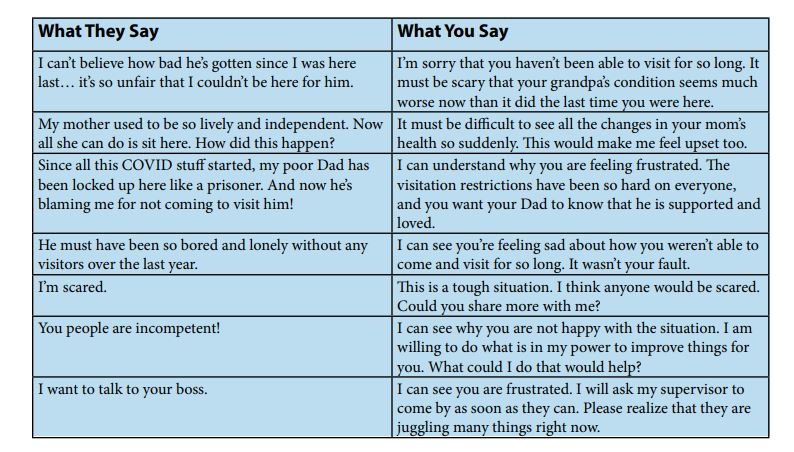Because of COVID-19 and the resulting visitation
restrictions, friends and family have lost a lot of time
with those living in long-term care. During this time,
their loved one may have gone through many changes
due to age, illness, or disease. The loss of time, loss of
health, and loss of their relationship, as it once was can
lead to grief. This can cause many different emotions,
including sadness, anger, anxiety, frustration, guilt, and
helplessness.
It is important to respond to these emotions effectively.
When emotions are ignored or poorly acknowledged,
it can seem like they don’t matter. However, when
emotions are acknowledged, it can help lessen the
power behind them.
If you are a care worker and one of your residents’
visitors is experiencing strong feelings when they
are talking to you, try these strategies to help you
through the conversation.
Validate the emotion. By naming the
emotion and normalizing it, the person is
more likely to feel heard and understood.
Listen actively. Concentrate on what
is being said with the intention of
understanding, instead of replying.
Give time. Don’t rush the conversation, even
if you are busy. Rushing can make the person
feel like you don’t care.
Consider your body language. Maintain
eye contact, an open posture, and interested
expression to communicate your concern
and attention.
Be empathetic. Think about how you would
feel if you were in their position.






